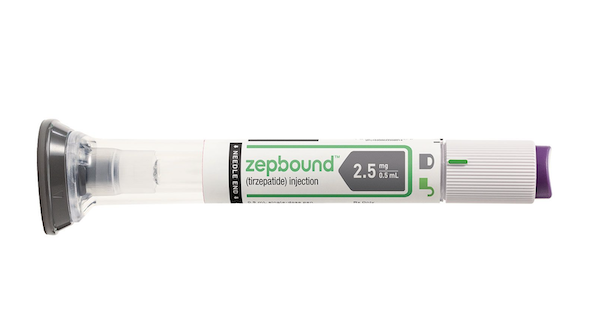Sign up for our free daily newsletter
Get the latest news and some fun stuff
in your inbox every day
Get the latest news and some fun stuff
in your inbox every day
Last week, Eli Lilly reported its latest numbers. The stock surged after the company improved its outlook for 2024, elevated by the potential for their new weight-loss drugs. The stock rose as much as 7.9% on the news, the most intraday gain since August, and has nearly doubled over the past 12 months.
The sales of tirzepatide, the GLP-1 drug, comprised of $1.8 billion from Mounjaro (the diabetes version) and $517 million from Zepbound (the official weight loss version), were slightly below expectations due to supply constraints. However, these medications, along with the breast cancer drug Verzenio and the Boehringer Ingelheim-partnered Jardiance, contributed to a significant revenue increase of 26%, bringing total revenue for the quarter to $8.7 billion.
Demand for Lilly and Novo's weight-loss drugs remains solid, with both companies facing supply shortages. Analysts now view the estimate of $80 billion in annual obesity drug sales by 2030 as conservative. Excellent news for both companies.
The company anticipates significant production boosts in the latter half of the year for Zepbound and its associated diabetes medication Mounjaro.
Eli Lilly has been expanding its production capacity for diabetes and weight-loss drugs over the past four years. The company plans to initiate production from one of its newly upgraded facilities in North Carolina later this year, with others expected to come online starting in 2025. Additionally, Lilly recently acquired a manufacturing plant in Wisconsin, expected to commence production by the end of 2025.
While Lilly's weight-loss drug success is notable, the company faces delays in gaining US clearance for its experimental Alzheimer's disease treatment, donanemab. The biotech giant remains confident in donanemab's potential, despite concerns raised by the FDA about its safety and efficacy.
Eli Lilly is also exploring additional medical benefits of its GLP-1 drugs beyond diabetes and weight loss, such as potential heart-protective properties, which could broaden insurance coverage. The company also expects Zepbound to gain coverage for Medicare patients once approved for obstructive sleep apnea, following positive late-stage data in April.
The skyrocketing demand for both drugs, known chemically as tirzepatide, has propelled Eli Lilly's market value above $720 billion, surpassing that of Tesla and Walmart. We're still of the opinion that the market hasn't fully recognised Eli Lilly's potential, presenting a buying opportunity for those who don't already own shares in the company.
